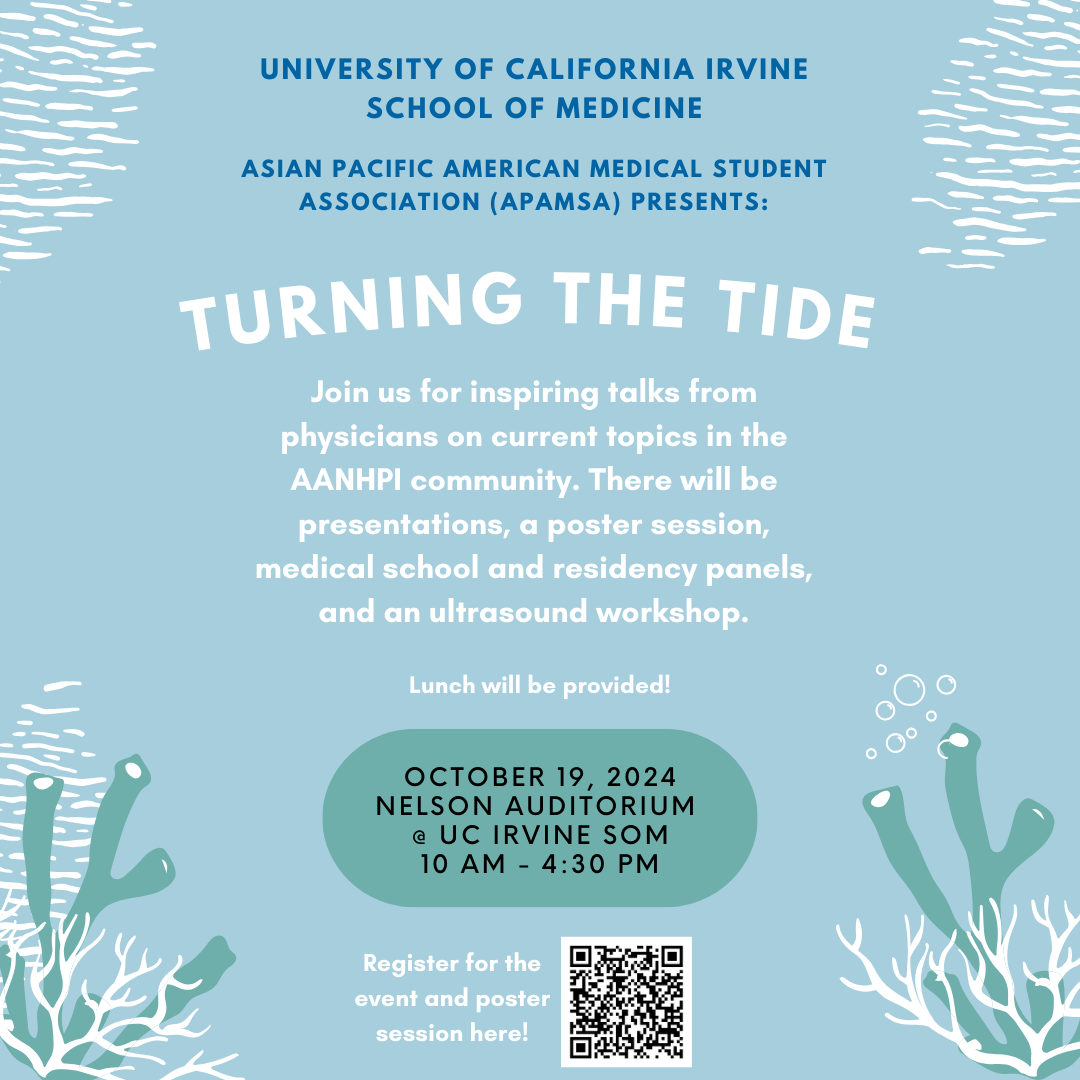Region VIII Conference
APAMSA Region VIII and the UCI APAMSA chapter are ecstatic to invite you to the annual Region VIII Conference hosted at the University of California, Irvine in Irvine. We are excited to host this event, celebrate all backgrounds, and uplift AANHPI communities through our conference “Turning the Tide.” Our theme highlights the shift in narrative towards unity, commemorating diverse backgrounds and perspectives, and acceptance of all. Through this conference, we hope to uphold this goal by hosting influential speakers in the AANHPI sphere, facilitating pre-medical and resident/attending panels, and featuring the research contributions of APAMSA members.
Statement on the Apalachee High School Shooting
On Wednesday, September 4th, 2024, those at Apalachee High School in Winder, Georgia, witnessed a shooting that took the lives of four individuals and injured nine more. This is the 385th mass shooting and the 45th school shooting of the year in the country.
APAMSA remains staunchly opposed to gun violence (Resolution 40.006) and demands stricter gun control, and yet again emphatically states that there is a need for gun reform and control to prevent such acts from occurring. Underaged individuals, especially those with a history of threatening a mass shooting, should not be able to obtain assault weapons. We urge legislators to keep this pressing issue in mind as the 2024 election draws closer, to prioritize their commitment to such reform, and to listen to the voices of their grieving constituents.
We mourn with the nation for the lives lost and interrupted by this tragedy. We offer our support to those affected and we encourage you to reach out if there are specific ways in which we can assist you.
For local support, please contact the Region 4 directors at region4@apamsa.org.
For questions or concerns, please reach out to Nataliyah Tahir at rapidresponse@apamsa.org
Donna Tran, MD, MPH
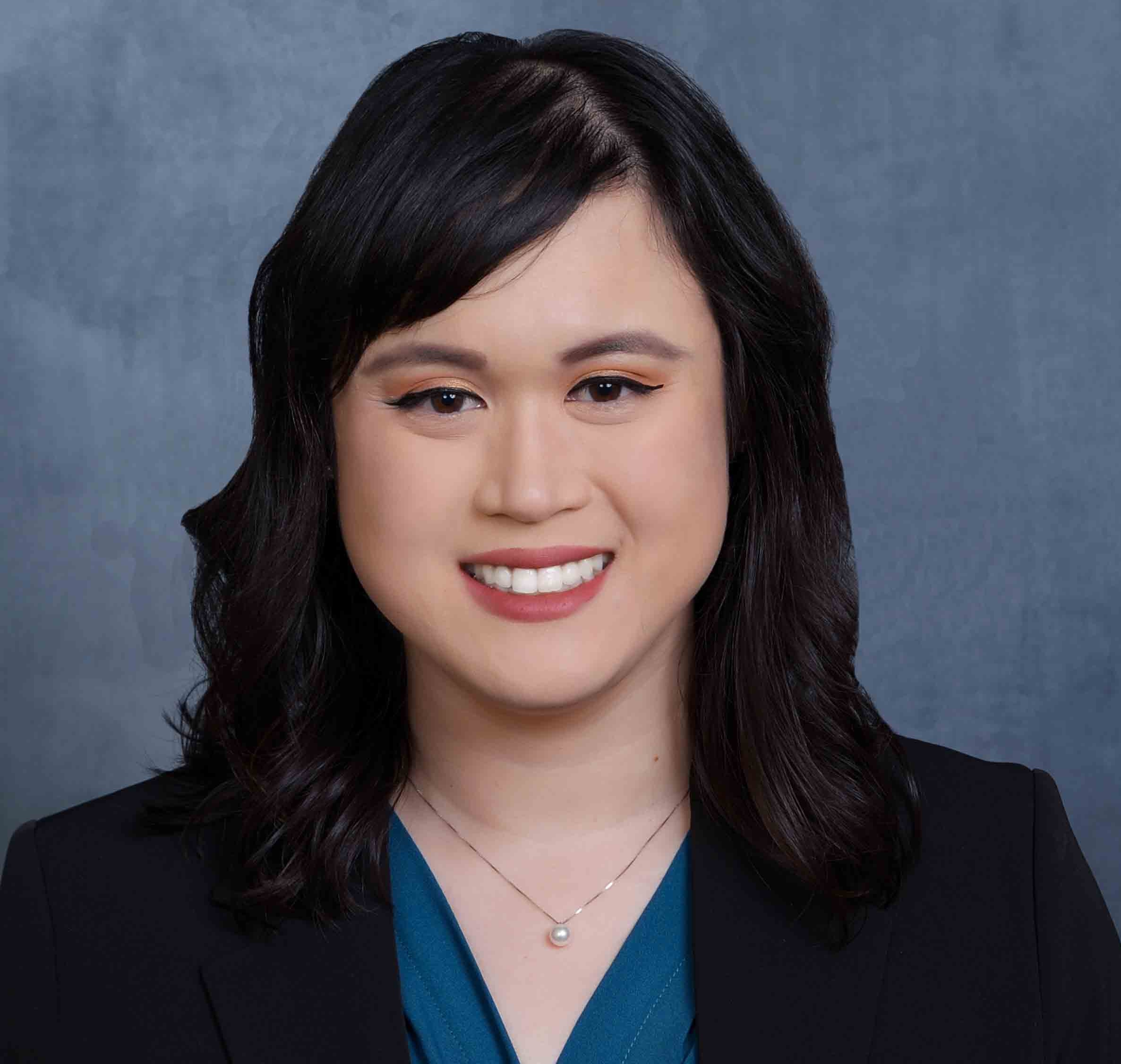
Network Director
Donna Tran, MD, MPH, is a psychiatry resident at Stanford Health Care. She earned her MD from Michigan State University College of Human Medicine and her MPH from Johns Hopkins School of Public Health. During medical school, she served as the National President of APAMSA from 2021 to 2023. In 2024, she was appointed as the District 10 Representative on the Senior Citizens Commission of the City of San Jose and interned under U.S. Congressman Jimmy Panetta (CA-19). Previously, she worked as a health policy intern in the U.S. Senate Committee on Health, Education, Labor, and Pensions (HELP) and presented to President Biden’s Advisory Commission for Asian American, Native Hawaiian, and Pacific Islander AANHPI (PAC-AANHPI/WHIAANHPI), advocating for public mental health. Her research focuses on health inequities, leadership, primary care, and advocacy. In her free time, Donna enjoys bouldering,
spending time with her French bulldog, and listening to TED Talks and podcasts.
2024 APAMSA Regional Conference Diversity Travel Grant
National APAMSA is offering a limited number of travel grants to increase participation in the APAMSA National Conference by medical students who are underrepresented and often invisible in the AANHPI narrative in the United States. We currently expect to award 12 individual grants of approximately $100.
More information in the application here and hyperlinked below: tinyurl.com/2024-rc-grant
Apply now!



2024 APAMSA Regional Conferences
We are excited to announce the dates and host schools for the 2024 APAMSA Regional Conferences! We have 7 conferences from August to October with exciting opportunities to learn from speakers, network, and meet other APAMSA members! Keep an eye out for more information for each specific conference. Please reach out to membership@apamsa.org with any questions!
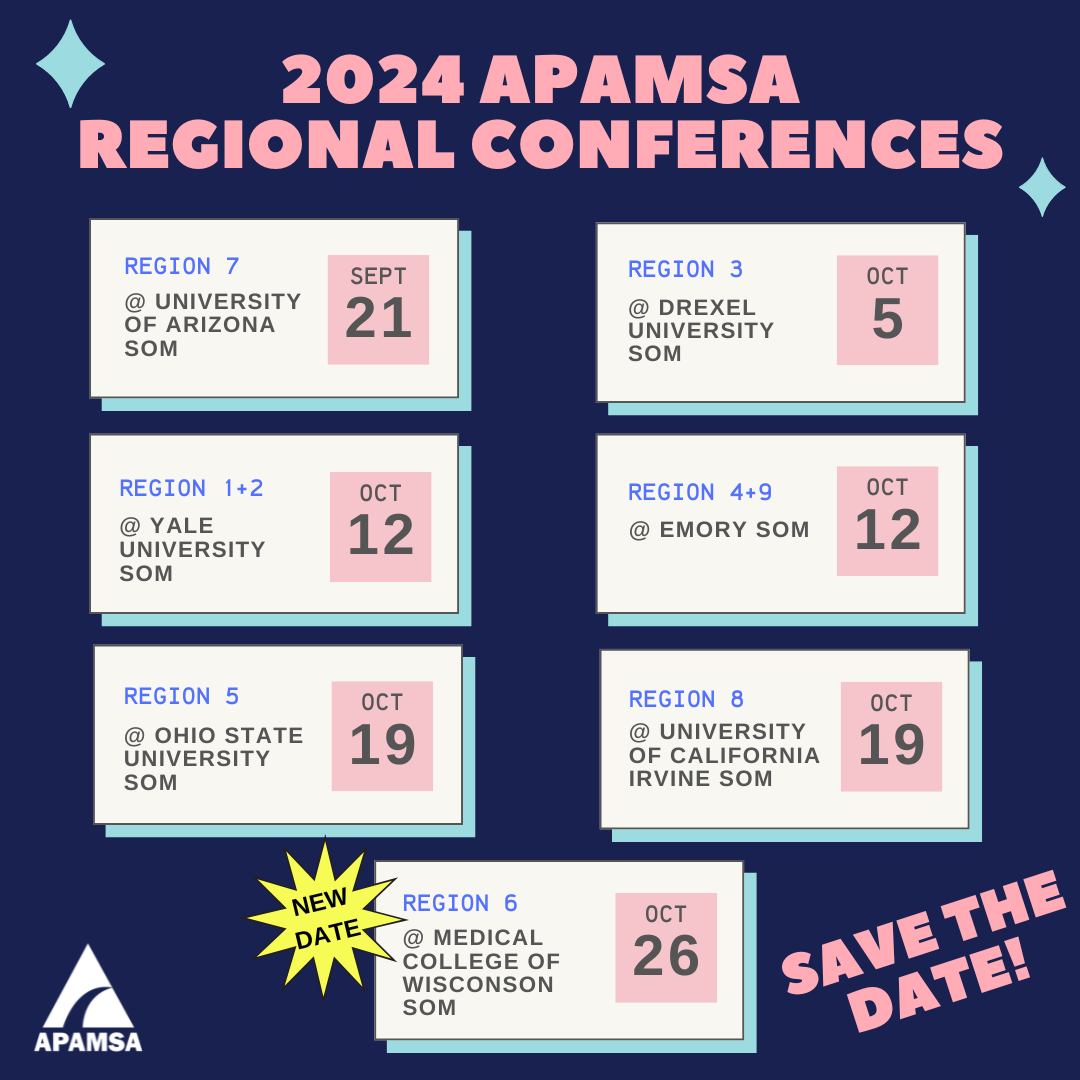
ERAS Workshop
Join us on Wednesday, August 7th at 8:00 PM EST/5:00 PM PST via Zoom for our Personal Statement and ERAS Workshop. We’re excited to have Dr. Grace Kajita, IM Program Director at Montefiore, and Dr. Indu Partha, IM Program Director at the University of Arizona, Tucson, as our distinguished guests. These experienced program directors will share their expert tips and strategies to help you stand out in your residency application. Gain firsthand advice, learn how to effectively present your experiences and strengths, and participate in a Q&A to get your questions answered. Don’t miss this opportunity to enhance your application and set yourself apart!
Mark your calendars and join us for this workshop!
Meeting ID: 990 4810 7729
Passcode: 294708
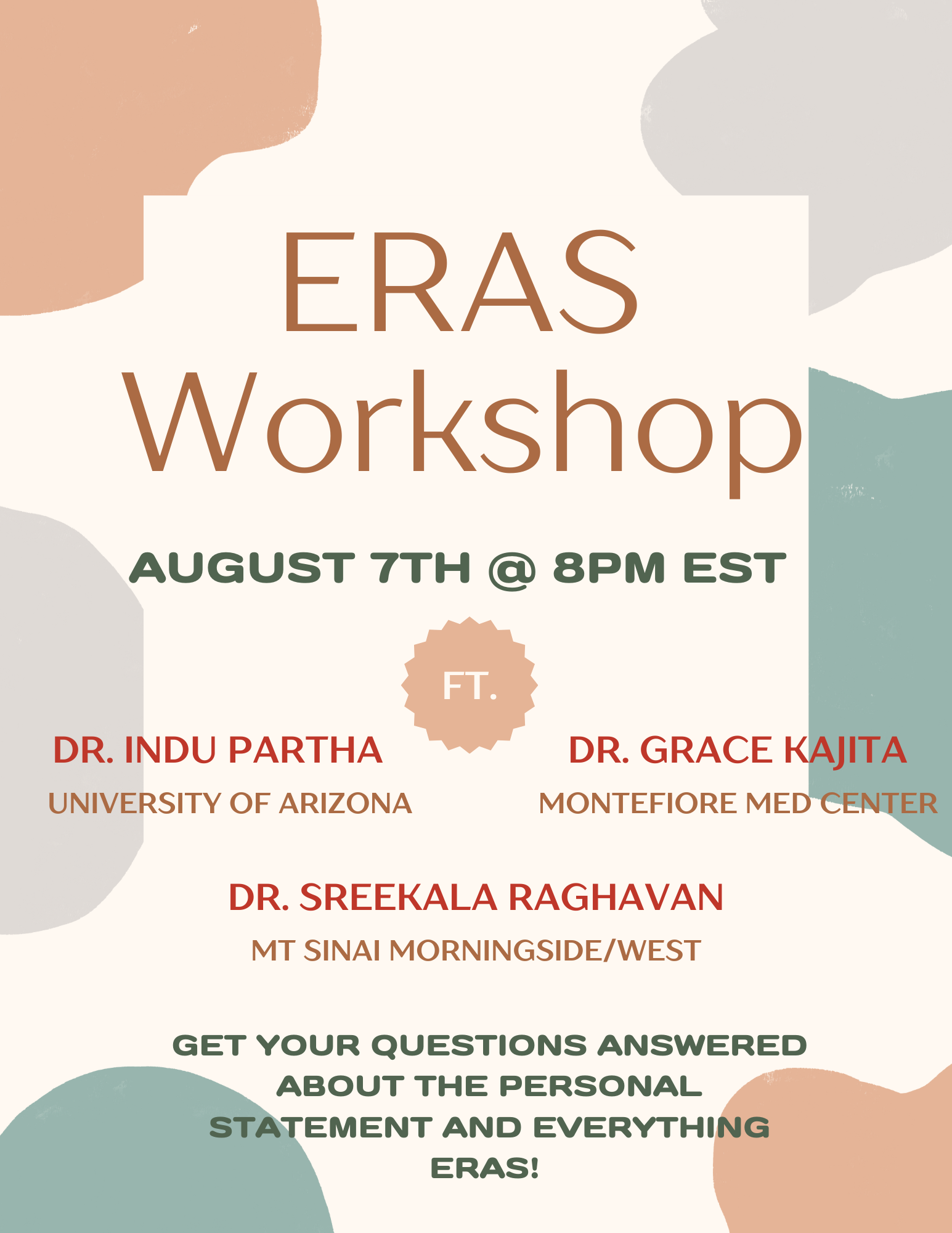
A Message From Our President
Welcome to APAMSA! Thank you for visiting our website and learning more about our initiatives for Asian American, Native Hawaiian, and Pacific Islander (AANHPI) pre-medical students, medical students, physicians, and community members.
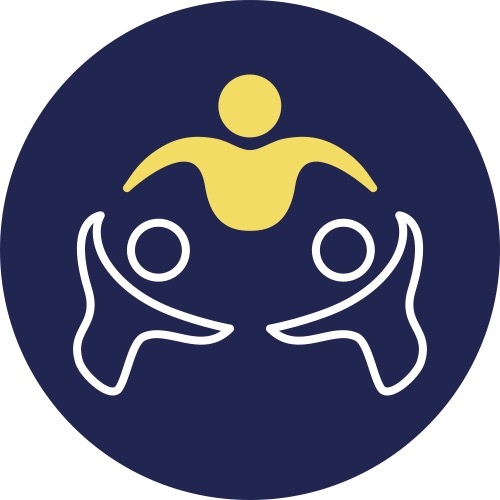
As the largest, official 501(c)(3) non-profit organization dedicated to addressing the unique health challenges of the Asian American, Native Hawaiian, and Pacific Islander (AANHPI) communities, we are driven by a mission to enact meaningful change. Since our inception in 1995, APAMSA has been pivotal in combating health disparities through robust leadership, mentorship, advocacy, research, and service. With over 170 chapters spanning nine regions, we are strategically positioned to impact the AANHPI communities directly, delivering critical services and fostering health equity where it is most needed.
APAMSA has intensified its focus on preventative health measures by championing hepatitis, cancer, and mental health education. Our local chapters have been instrumental in enacting change on the ground by organizing health fairs, advocating for policy changes, expanding research participation, and educating the public about health disparities. We have strengthened our commitment to inclusivity by leading committees and initiatives that serve diverse subgroups within our community. Through civic engagement and professional development initiatives, we are amplifying AANHPI voices and preparing a new generation of healthcare leaders.
Join us in fulfilling our 2024 National Goals:
- Expanding Educational Initiatives: Educating both patients and healthcare providers on the unique health challenges and disparities AANHPI communities face.
- Spearheading Diversity: Strengthening our commitment to inclusivity by advocating for diverse subgroups within the AANHPI community, and creating more opportunities for traditionally marginalized groups.
- Promoting AANHPI-Centered Research: Creating opportunities for students to learn from researchers who conduct AANHPI-centered research, identify and address specific health and professional challenges that AANHPI communities face, and disseminate this research at national and regional conferences.
- Strengthen Mentorship Programs: Guiding the next generation of healthcare leaders by matching mentees with mentors who share similar experiences.
- Grow Our Alumni and Membership Base: Bridging connections between local and national APAMSA through joint initiatives, events, and socials.
- Enhance Partnerships: Strengthen our partnership with allied organizations and creating more opportunities for inter-organizational collaboration.
We invite you to join us in our mission by becoming a member of APAMSA HERE and following us on Facebook, Twitter, and Instagram to stay connected with us. Stand with APAMSA and become a catalyst for health equity. Let’s ensure that every member of the AANHPI community has access to the quality, culturally-sensitive healthcare they deserve. Together, we can create lasting change!
“The greatness of a community is most accurately measured by the compassionate actions of its members.” – Coretta Scott King
Yours sincerely,
Victoria J. Shi
She/Her/Hers
President
president@apamsa.org

Helen Heo, National Conference Director
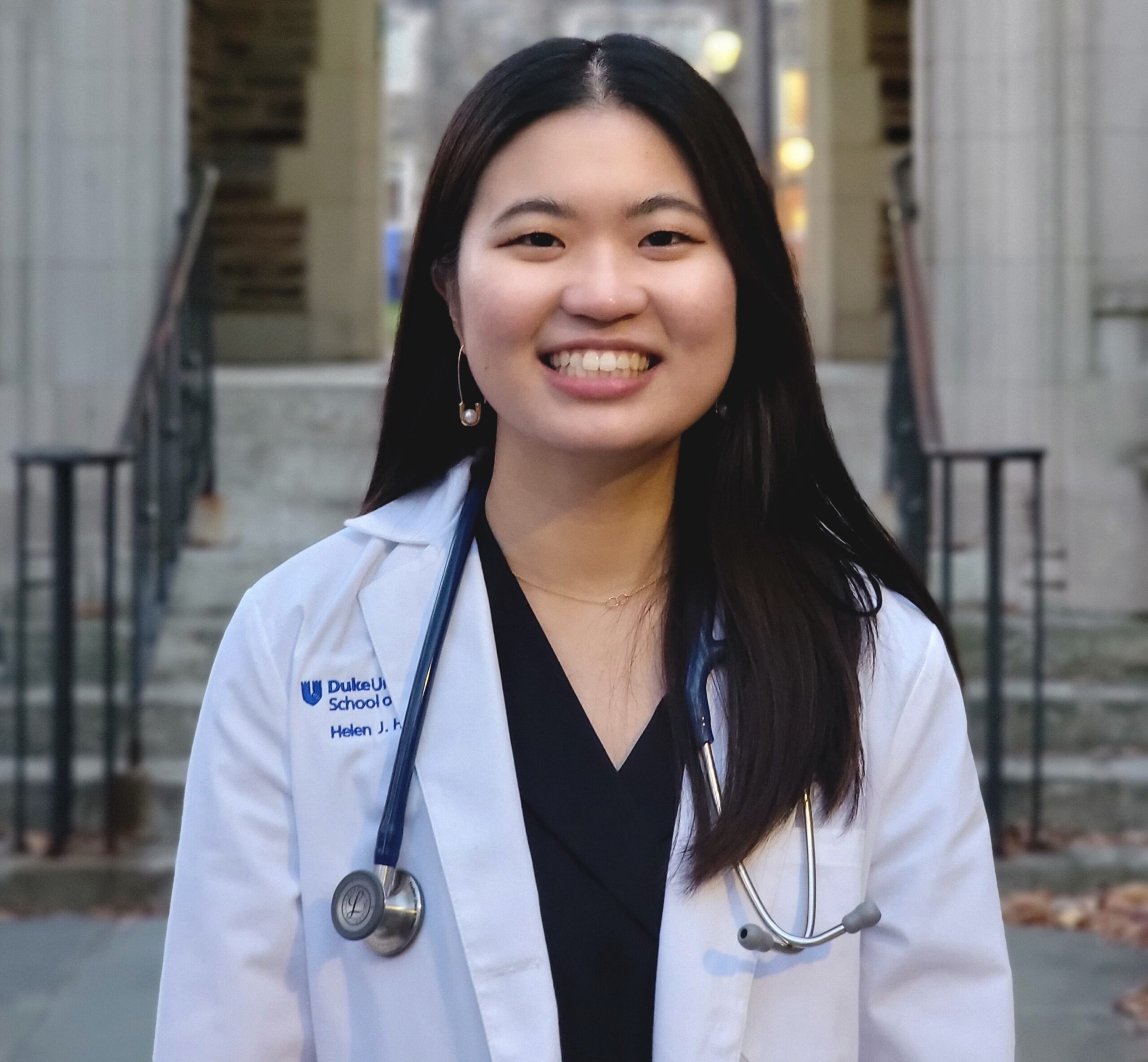
Network Director
Helen Heo is a third-year MD/PhD student at the Duke University School of Medicine. Originally from Milwaukee, WI, she completed her B.S. in Neurobiology and Molecular Biology at the University of Wisconsin-Madison before spending a year in San Francisco, CA as a SENS Research Foundation Postbaccalaureate Research Fellow at the Buck Institute for Research on Aging. She then moved to Durham, NC to pursue her MD/PhD training at Duke. She is completing her PhD in lab of Dr. Cagla Eroglu, where her research will focus on the role of astrocytes in Multiple Sclerosis using human cellular models.
She has been involved in Duke’s chapter of APAMSA for the past three years, serving as chapter president in 2023-2024. She is excited to serve as a National Conference Logistics Director for the 2025 National APAMSA Conference, and is looking forward to celebrating APAMSA as well as introducing attendees to Duke and Durham!
Kelly Pu, National Conference Director
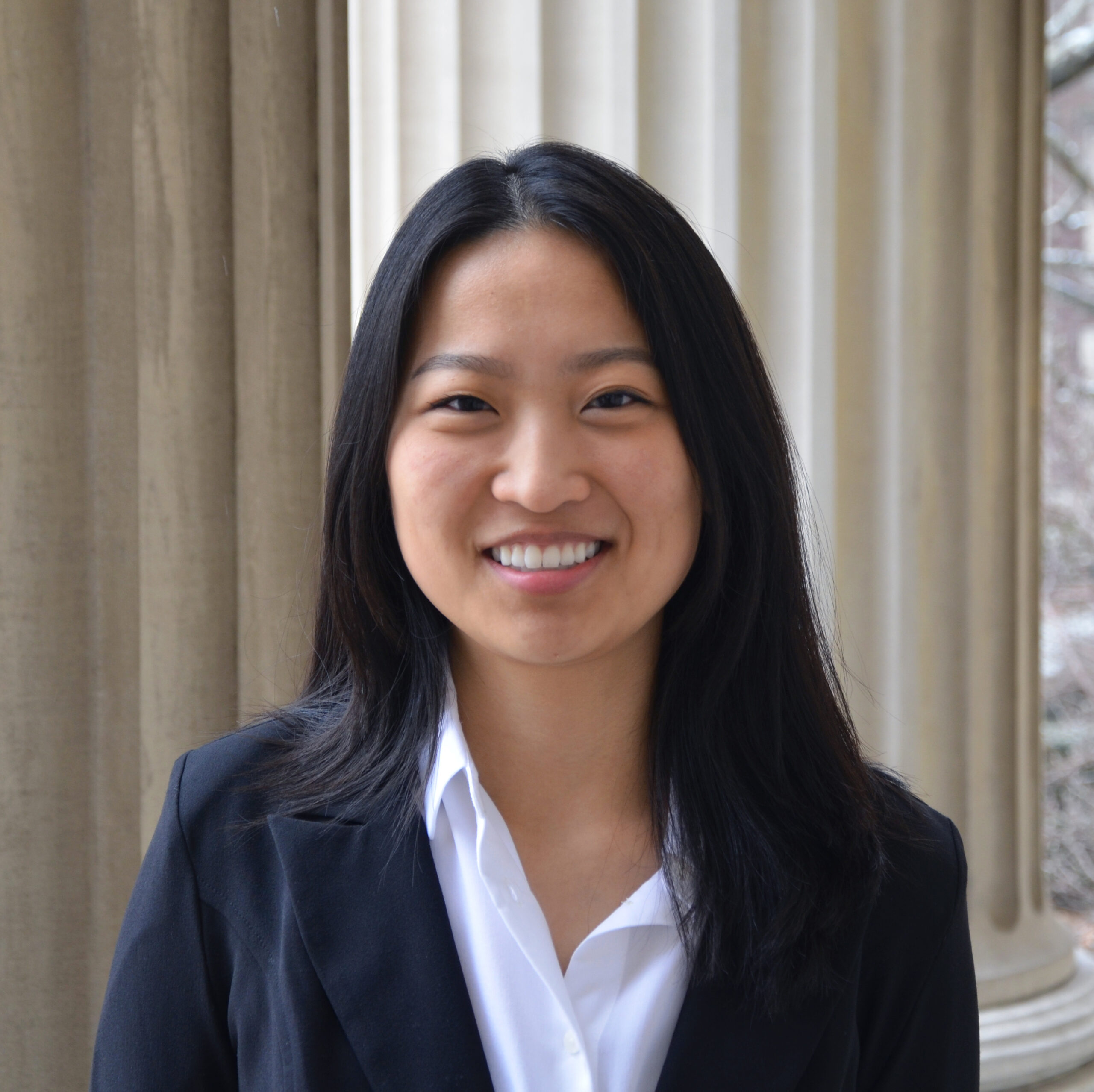
Network Director
Hi everyone! My name is Kelly Pu, and I am an MS1 at Duke University School of Medicine. I am originally from Minnesota and majored in biomedical engineering at Columbia University. I’m interested in neuroscience and neurology. Outside of medicine, I enjoy running and the outdoors- I’ve run two marathons (so far) during medical school!
I’m part of Duke APAMSA’s Mental Health Committee and excited to be co-Director of Speaker Relations for the 2025 National Conference!
Katrina Hon, National Conference Director
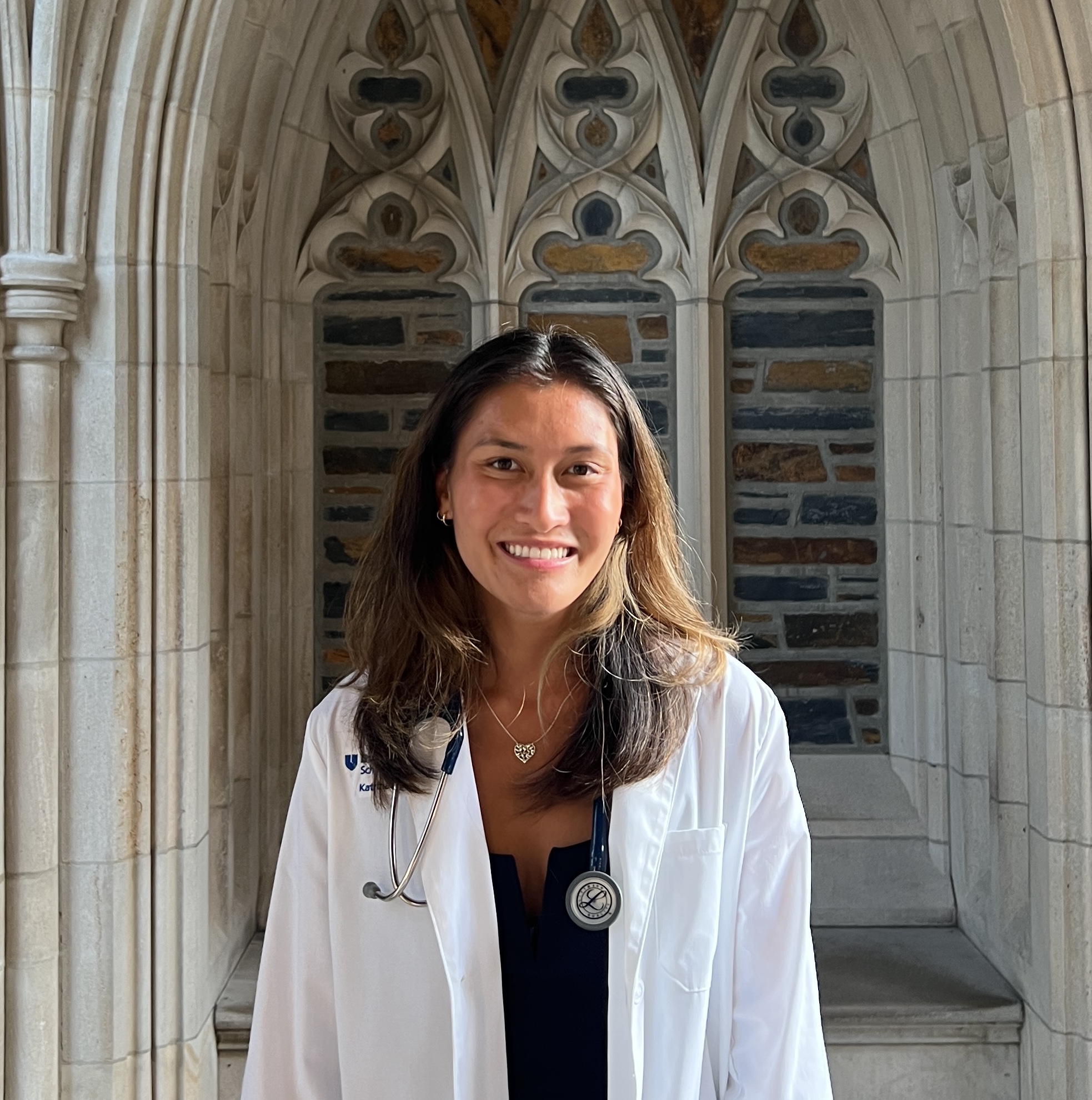
Network Director
Hi! My name is Katrina Hon and I am currently a first year medical student at Duke University School of Medicine. I grew up in Connecticut and got my Bachelor’s in Neuroscience at Harvard. Before medical school, I worked as a healthcare consultant in San Francisco. I am interested in exploring the intersection of neuroscience and medical humanities, as well as finding ways to support and build connections within AANHPI communities. I have loved being able to take a more active role in community engagement through APAMSA, and I am excited to expand my involvement through the national conference! Outside of medicine, I also enjoy traveling, thrifting, and painting!
